- Naslovna
- B92
- Aleksandar Stojanović
- Aleksandar Vasović
- Aleksandra Mitrovic
- Ana Sofrenović
- Avram Goldmann
- Biljana Cincarević
- Biljana Srbljanović
- Božidar Đelić
- Bojana Maljević
- Branislav Kovačević Cole
- Čedomir Antić
- Đorđe Bobić
- Dejan Švajner
- Dejan Bizinger
- Dejan Restak
- Dejan Stanković
- Dule Nedeljković
- Everest 2007
- Gistro FM
- Goran Marković
- Goran Miletić
- Gordan Kičić
- Gorica Nešović
- Igor Brakus
- Ivana Konstantinović
- Ivan Marović
- Jasmina Tešanović
- Jelena Krajšić
- Jelena Milić
- Jelica Greganović
- Maja Kuruc
- Marčelo
- Marin Milosavljević
- Marko Vidojković
- Mića Marković
- Milan Lukić
- Milan M. Ćirković
- Milan Novković
- Milan Obradović
- Milica Đilas
- Miljenko Dereta
- Miloš Šaranović
- Mjehur
- Nebojša Milenković
- Nebojša Spaić
- Neven Anđelić
- Nikola Vitas
- Nune Popović
- Olga Medenica
- Olivera Vujnović
- Oto Oltvanji
- Queeria
- Rade Rakočević
- Radmila Hrnjak
- Radovan Nastić
- Ruža Ćirković
- Saša Radulović
- Sanja Perić
- Srđan Fuchs
- Srđan Kusovac
- Tamara Skrozza
- Tanja Jakobi
- Tatjana Momčilović
- Tena Štivičić
- Terorizam
- Veljko Popović
- Vesna Knežević Ćosić
- Vikipedija
- Vladan Aleksić
- World News
- Željka Buturović
- Željko Mirković
- Biografije
blogs
Branka Parlic plays Philip Glass - Metamorphosis
Milan Lukić (24 Maj, 2006 - 06:55)Open Democracy, da čujemo našu Vesnu na engleskom
Jasmina Tesanovic (23 Maj, 2006 - 22:06)Au revoir, Montenegro?
Vesna Goldsworthy
23 - 5 - 2006
Montenegro's vote for independence closes a political chapter in former Yugoslavia, but Vesna Goldsworthy finds that the maps of the heart are not so neatly redrawn.
I was not one of those 484,718 people who voted for or against Montenegrin independence in the referendum on 21 May 2006. In Montenegro itself, many families were themselves divided. On Sunday morning, I rang a friend from the provincial Montenegrin town of Danilovgrad to discover that her voting intentions were different from her brother's. Neither was a rabid, Ruritanian-flag waving, nationalist figure of the kind much beloved of western TV crews, and both had sound arguments in support of their chosen option. Montenegro has a proud history of independent statehood which is longer – or less interrupted – than that of the other new states in the Balkan region, but also genuine and close historic links with Serbia which made the union a compelling option in the first place.
I have harboured mixed feelings about the outcome of the vote. I was born and bred in Belgrade, as was my father, but – like so many in the Serbian capital – he has strong ancestral links with Montenegro. While my mother comes from one of those picturesque villages in the lush valley of the Morava river which are the closest Serbia has to the heartland region of southern England known as the "home counties", my father is half-Montenegrin, half-Herzegovinian. The meaning of such distinctions has been recast again and again by the flow of Balkan history, but both my paternal grandparents would have been as surprised to be told that they are not Serbian as a Yorkshireman or a Devonian woman would be at hearing that they might not be English.
My grandmother, who lived with us throughout my youth, was fiercely proud of her Montenegrin identity. She was named after Zorka, the eldest daughter of the first and the last king of Montenegro, Nicholas Petrovich, during whose reign she was born in a village on the slopes of the kingdom's Durmitor mountain in 1908. She used to kiss King Nicholas's picture if she happened to come across it in the newspapers or on the pages of the history books in our library.
Zorka's speech was peppered with phrases from the Montenegrin epic poem, Gorski Vijenac (The Mountain Wreath), the work of its great Prince-Bishop Njegos ("Oh my dark day, o my black destiny! O my wretched Serbian nation snuffed out!"). Even her prayers were Montenegrin. Whereas my maternal grandmother used to keep a small icon of the Virgin by her bedside, Zorka treasured an image of St Vasiliy, the most famous Montenegrin saint, standing proudly in front of the monastery at Ostrog, the Montenegrin holy of holies, which is carved into a steep rockside near her place of birth.
On one of my visits to Belgrade from London, I produced – just for her – a translation of Alfred Tennyson's 1877 sonnet Montenegro, written by the country's then poet laureate at the request of his friend, Liberal politician William Gladstone. Montenegro was, wrote Gladstone, a name "perhaps less familiar to the European public than that of Monaco, and little more than that of San Marino" – and yet it would have gained immortal fame had there been "a Byron to spend and be spent on its behalf". Taking on the mantle of a Montenegrin Byron, Tennyson produced verse which pleased my grandmother enormously.
"They rose to where their sovereign eagle sails,/ They kept their faith, their freedom, on the height,/ Chaste, frugal, savage, arm'd by day and night/Against the Turk" the sonnet began, to culminate in the invocation of "Great Tsernogora" with its invincible race of mountaineers mightier than any other highlander clan. No wonder granny concluded that Tennyson was a genius. She was in no doubt that Montenegrins were a superior sort of Serbs, probably descended from those remnants of the Serbian feudal nobility that survived the battle of Kosovo in 1389. To question her Serbianness would have been more than my life's worth. I grew up proud of my own Montenegrin blood and the sorts of highland legends that would put Rob Roy or Braveheart to shame.
Vesna Goldsworthy is senior lecturer in English literature and creative writing at Kingston University, London. Among her books are Inventing Ruritania: The Imperialism of the Imagination (Yale University Press, 1998) and the memoir Chernobyl Strawberries (Atlantic Books, 2005; new edition, 2006). Her website is here.
Also in openDemocracy, personal perspectives on the Serbian complex and the dissolution of Yugoslavia:
Alix Kroeger, "Bosnia's war of memory"
(21 August 2002)
Dejan Djokic, "A conflict of loyalties: 1999 and 2003" (6 March 2003)
Alexandra Kovac, "Inat" (18 November 2004)
Dusan Velickovic, "Belgrade: war crimes in daily life"
(28 June 2005)
Slavenka Drakulic, "Sudden death and the afterlife of truth"
(16 March 2006)
Julie A Mertus, "Slobodan Milosevic: myth and responsibility" (16 March 2006)
Between myth and history
The fact that my ancestral lands will again belong to three different countries, as was the case when my grandparents were born, fills me with a degree of melancholy, but I understand the reasons for these separations. My Serbian compatriots have proved equally ineffectual in the arts of war and public relations. The image of Serbia in the outside world is now such that, on the day of the referendum, a restaurant critic in the Sunday Times – hardly an authority on Balkan politics – found it amusing to observe, in a review of a Sichuan restaurant in Soho, that "the people who are most addicted to chillies are not Mexicans, Sri Lankans or Hungarians, but Serbs".
"Their consumption of insanely psycho pickled chilli", the author continued, "has nothing to do with food, it's simply part of their rudimentary, sadomasochistic bonding that involves drink, stomach ulcers and recreational pogroms". The Serbs are now collectively seen as the sort of people with whom no one would want to share a restaurant table, let alone a state.
My best hope is that, with Montenegro's departure, Serbia finds its own independence too, and turns a corner of some kind. With the right sort of action, it doesn't necessarily take long to change external perceptions. The brutal regicide in Belgrade of 1903, after which the Serbs were commonly described in the British press as the most savage people in Europe, and the British call to arms in aid of "plucky little Serbia" in 1914, were, after all, divided by little more than a decade.
Interestingly, as in every move for secession from what once constituted Yugoslavia, the Montenegrin vote was presented as a Manichean choice between Europe of light, peace and plenty and Balkan darkness. In the limbless torso of the old Yugoslav federation, Serbia and Montenegro were already asunder in all but name. With different currencies and different fiscal and economic regimes, the army and the air-control system have represented the last functioning federal organisations for many years now.
Paradoxically, what Serbia and Montenegro share is a desire to join the European Union. Indeed, Europe featured prominently on both sides in the Montenegrin referendum campaign. In striking for independence from Serbia, Montenegro is likely to find in Europe a small store of good will, and my hope is that it will use it wisely in order to join the EU as soon as it can. With a population of 680,000 smaller than that of an average English county, it can be absorbed into the EU much more easily than Serbia, which is more than ten times larger.
I can't help feeling that, as in much of east-central Europe, the European Union tends to be seen as an updated version of an earlier communist utopia ("From each according to their ability, to each according to their need"), but – for better or worse – the carrot of European integration is the best hope anyone has for long-term stability in Europe's troubled deep south.
I vaguely remember an old anecdote about an Ottoman official talking to an English diplomat after a costly British military intervention in one of the 19th-century crises du jour. "Why didn't you just bribe them all?", asked the pragmatic Ottoman, "it would have been much easier and cheaper in the long run". There's nothing wrong with a bit of European bribery.
ima li nekoga u pozorištu
Anonimus (23 Maj, 2006 - 17:39)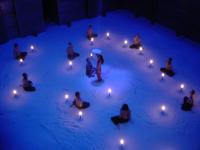
Mislim nas što svakim danom ovde radimo, nas koji imamo i kancelarije, funduse, kompjutere, ali i nas koji oblačimo kostime, stavljamo maske, imamo tremu, smeta nam prehlada, ne možemo da zaspimo nakon predstave.
Ajd, al iskreno, ide li neko od VAS kod nas, kupujete li ulaznice, šta vas na to navodi, jeste gledali nešto što bi ste drugom rekli da NIKAKO NE GLEDA, a naravno i obratno.
O bermudama i biciklu
Nebojša Spaić (23 Maj, 2006 - 15:40)Može i ovako - neko je s pravom konstatovao da je glupo da pišem o CG ref, kada bih mogao o "bermudima i biciklu". Dakle, blog po narudžbini. Mož' da bude zabavno. Nije u njegovoj prirodi, al' ajde - ni ovi što nas pozivaju da blogujemo nije mainstream u svetu blogova. U tome je lepota - može da se iskače iz uobičajenih formi. O biciklu drugi put - tema lično previše značajna za ad hoc komentar. O bermudama - što da ne.
Referendum u Crnoj Gori - Da li neko mora da bude gubitnik?
Milica Đilas (23 Maj, 2006 - 11:28)Ode i Crna Gora. Nije da nisam očekivala. I reakciju u Srbiji sam očekivala, ali mi je opet teško pala – ne znam da li više oni komentari tipa «Crna Gora nam je okrenula leđa, braća odoše» ili oni «najzad odoše Crnogorci, dosta nam ih je više, sad sa njima kao sa strancima». Da se razumemo, potpuno mi je jasna emotivna vezanost koju ljudi osećaju za zajedničku državu. Svesna sam, takođe, i mnogih argumenata u prilog postajanju zajedničke države – nemoguće je zalagati se za integrativne forme poput Evropske unije, a prenebregavati koristi međusobne integracije. Na žalost, način na koji je do sada funkcionisala državna zajednica svakako nije jedan od tih argumenata. A nije ni negiranje nacionalnih osećanja Crnogoraca, što se često čulo odavde.
Summertime
Jovan Đorđević (23 Maj, 2006 - 09:34)Al’ je pripeklo. 29 nešto pre 9, kažu Draganče i Gorica. Uključio sam jedinu klimu koju ima već 15 godina neuništivi Reno 5. Onaj prozor levo malo teže, nemam WD 40 da mu razmrdam stare kosti. Grebu diskovi dok kočim (malo i ručnom, da ne slušam ružan zvuk koji budi grižu savest), mrzi me da odem do majstor Ljube u Surčin. Opet će da me maltretira kako sam najnesavesniji vozač koji mu dolazi na remont. Neka, nek' me pegla, samo da u garaži ima 'ladno pivo. Ne debelog plastikanera, nego flajka. Kod njega samo flajke. I to ne za njega. Ne pije čovek. Samo za goste. Dobar majstor. Unikat.
» dalje | Jovan Đorđević
Internet korisnici 2015
Jasmina Tesanovic (23 Maj, 2006 - 09:03)Krv nije voda!!!
Jasmina Tesanovic (22 Maj, 2006 - 22:48)Zavod za transfuziju krvi Novi Sad uklonio sa svog sajta podatak da istopolno orijentisane osobe nisu podobne za davanje krvi Osobe koje su imale homoseksualni kontakt "ipak" su podobne za dobrovoljno davanje krvi, barem po Zavodu za transfuziju krvi Novi Sad. Naime, ovaj zavod je nakon reakcije Labrisa - organizacije za lezbejska ljudska prava, uklonio sa svog sajta podatak da osobe koje su imale seksualni odnos sa osobom istog pola nisu podobne za dobrovoljno davanje krvi. Labris pozdravlja ovaj cin uz nadu da se diskriminacija zaista nece dogadjati ni u praksi. Nakon sto je desetak aktivistkinja nevladinih organizacija, u subotu 20.
Dan posle
Srđan Mitrović (22 Maj, 2006 - 22:22)I tako... dan posle. Javni servis traći naše pare praveći kojekakve specijale o njima i nama, na ostalim televizijama defiluju silne spodobe, koji su jedva dočekale da ih neko pita za nešto. Najviše volim takozvane ANALITIČARE. Šta im pa to znači? Kao nešto analiziraju. Aha! Lupetaju kao i svi ostali. A najviše se obrukali ovi iz Cesida. Zamalo da izazovu građanski rat! Neće ih oprati sve podzemne vode ove zemlje 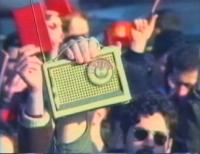 radio b92koja je napokon postala Srbija. Ma šta se i ja petljam u sve ovo. Meni je trenutno najvažnije da je Klark Kent povratio svoje moći.
radio b92koja je napokon postala Srbija. Ma šta se i ja petljam u sve ovo. Meni je trenutno najvažnije da je Klark Kent povratio svoje moći.
» dalje | Srđan Mitrović
"Ništa nije savršeno" (Šesta knjiga Mojsijeva)
Nebojša Spaić (22 Maj, 2006 - 22:02)Dakle, radovao sam se ovome kao mogućnosti da se zabavim pišući tako, o koječemu, a da poneko to, mož' bit, i pročita. Kad ja tamo, a ono međutim, reče neko. Reče onako jeftino, prosto, na prvu loptu, taman da se citira u ovoj prilici.
Sačeka me mail od moderatora, kaže, bravo blogeri, imali ste 5 hiljada čitača, raznih, dnevno. Sačekaše me kometari od prijatelja i poznanika, što mailom, što na blogu, kažu, valja ovo, ne valja ono. Za ovu priliku nije bitno što su (ste) potpuno u pravu.
slaba vlast
Boris Pavlović (22 Maj, 2006 - 21:06)juče posle sedam sati uveče sam se sa porodicom vraćao od posete prijateljima u sremčici. posle nadvožnjaka na čukarici smo upali u gužvu. hiljade automobila sa ade, brda, žarkova i ibarske magistrale. ljudi sede u kolima, opušteni, čak su i deca mirna.
iz mase automobila su se promolila dva crna bmw-a. ne znam koji je od funkcionera kojeg nivoa i ogranka vlasti bio u prvom automobilu. drugi je bio napakovan namrštenim ćelavcima bez vrata koji nisu još stigli da promene imidž iako su avanzovali legitimaciju
u jednom trenutku su paralelno sa našim kolima. iza njih je stao neki baja na motoru sa plavušom i počeo da se buni i da im objašnjava kako su napravili zastoj.
Solarna muzika
Jasmina Tesanovic (22 Maj, 2006 - 21:01)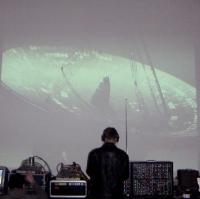 Solarna muzikaU "glamuroznom" Dortmundu gde su i ulične stolice u obliku futbalske lopte...
Solarna muzikaU "glamuroznom" Dortmundu gde su i ulične stolice u obliku futbalske lopte...
U Feniks sali , napuštenoj fabrici , danas izložbenom ogromnom prostoru, dve elektonske umetnice, jedna iz Latvije druga sa Novog Zelanda, Rasa Smite i Honor Hager, predstvaljaju solarni radio zvuk. Napuštenu vojnu antenu u Latviji preusemerile su da registruje šumova sa planeta i da ih pretvara u muziku. Ruska vojska je isprva htela sve da sruši napuštajući teritoriju, a lokalni inžinjeri bili su skeptični u odnosu na umetničke ideje.
Skidam kapu devojkama koje od tehnologije ne prave bauka a od astronomije horoskope...
Što se mene tiče od kad imam Blog a nemam državu moja adresa biće solarna tačka net...hvala Mladiću, hvala Karadžiću, hvala Koštunice, ko zna zašto je to dobro
Kutija Zla - Any Box Logo
Milan Lukić (22 Maj, 2006 - 13:55)
 Any Box Logo(btw, text je nesto kao OMAGE, kofa inspiracije zahvacena iz bunara novinara nedeljnika Vreme ---> ---> ---> inspirisano bicem koje se potpisuje kao ---> Dragan Todorovic )
Any Box Logo(btw, text je nesto kao OMAGE, kofa inspiracije zahvacena iz bunara novinara nedeljnika Vreme ---> ---> ---> inspirisano bicem koje se potpisuje kao ---> Dragan Todorovic )
k o n a c n o !
nakon sto smo prikupili sve ono sto je potrebno da bi jedno domacinstvo iole normalno funkcionisalo(...frizider,bojler,sporet,televizor...) - SADA je pravi trenutak za sledeci korak. ...pitanja za vase/nase klince :
1. a sta mislis o CD plejeru...?
2. ...'oces mozda i KOMPJUTER ?
Zlatni Zoltan
Željko Mirković (22 Maj, 2006 - 11:38)Zagrizli smo ponovo.
Posle filma MUHAREM, MUZIKA OČI ŽIVOTA, koji je do sada osvojio 6 internacionalnih i domaćih nagrada, krećemo sa snimanjem novog dokumentarnog filma:
ZLATNI ZOLTAN
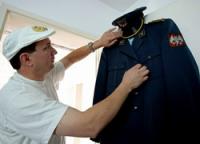 Pekar i pukovnikČovek koji je bio na čelu tima koji je oborio "nevidljivi" F117 danas je pekar. Morao je da napusti svoju profesiju jer za njega više nema pravog mesta u vojsci.
Pekar i pukovnikČovek koji je bio na čelu tima koji je oborio "nevidljivi" F117 danas je pekar. Morao je da napusti svoju profesiju jer za njega više nema pravog mesta u vojsci.
018... Prijatno najstarija!
Jovan Đorđević (22 Maj, 2006 - 11:37)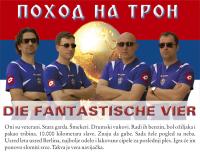 018... Prijatno najstarija!Ode Obala Lozovače. Meni bedak zbog vaterpola. Kao što nikada nisam prežalio što ’92 nismo zajedno poslali naše klince da obeščaste jedini pravi Dream Team. Nisam u problemu zbog one oranice na kojoj piruju varvari, al’ bih rado na Savin Kuk ako može bez soške. I do Drobnog Pijeska. I Crvene glavice. I Reževića. I... pa nema više. Sve uspomene stadoše u 3 rečenice. Je l’ to dobro ili loše? Ili u mom srcu više nema mesta za još jednu brazdu? Popunilo se za ovih 15 godina. Sad sam kao glečer.
018... Prijatno najstarija!Ode Obala Lozovače. Meni bedak zbog vaterpola. Kao što nikada nisam prežalio što ’92 nismo zajedno poslali naše klince da obeščaste jedini pravi Dream Team. Nisam u problemu zbog one oranice na kojoj piruju varvari, al’ bih rado na Savin Kuk ako može bez soške. I do Drobnog Pijeska. I Crvene glavice. I Reževića. I... pa nema više. Sve uspomene stadoše u 3 rečenice. Je l’ to dobro ili loše? Ili u mom srcu više nema mesta za još jednu brazdu? Popunilo se za ovih 15 godina. Sad sam kao glečer.
» dalje | Jovan Đorđević





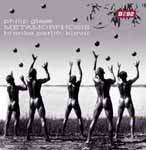
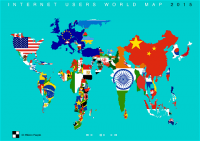
Najnoviji komentari
(1 godina 32 nedelje)
(1 godina 32 nedelje)
(1 godina 32 nedelje)
(1 godina 32 nedelje)
(1 godina 32 nedelje)
(1 godina 32 nedelje)
(1 godina 32 nedelje)
(1 godina 32 nedelje)
(1 godina 32 nedelje)
(1 godina 32 nedelje)